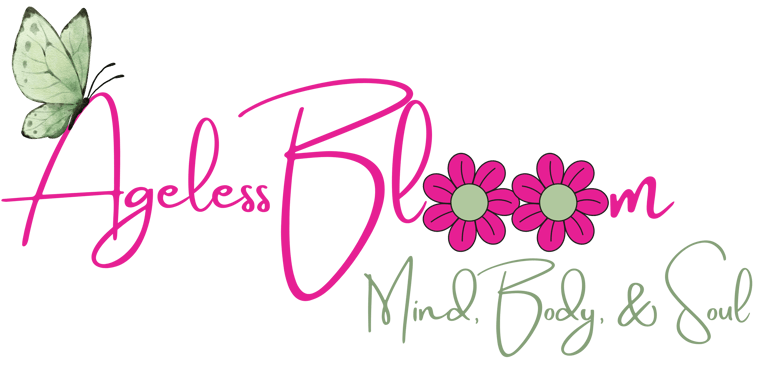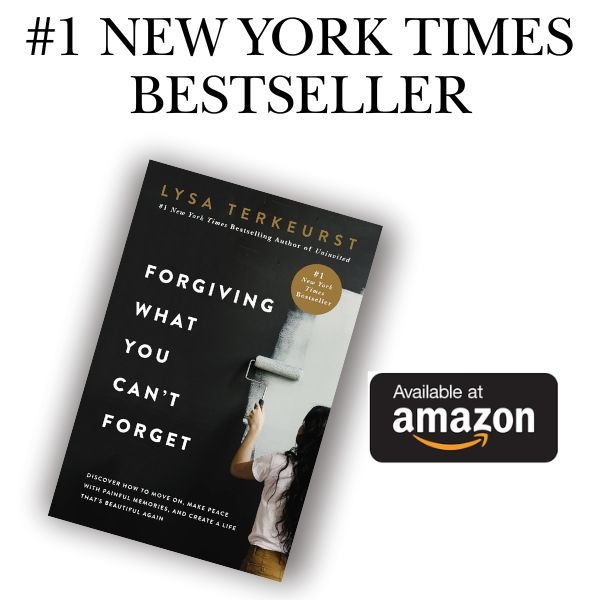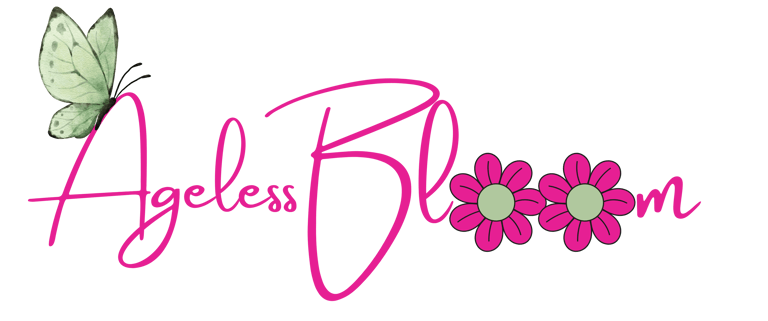Relationship Forgiveness: Real Stories and Simple Steps for Women Seeking Healing and Deeper Connection
Discover Relationship Forgiveness through heartfelt stories and practical steps. Create trust, heal old wounds, and grow closer to those you love.
RELATIONSHIPS
Shari Smith
4/23/2025
As an Amazon affiliate, we earn commissions at no extra cost to you if you click our links and make a purchase.
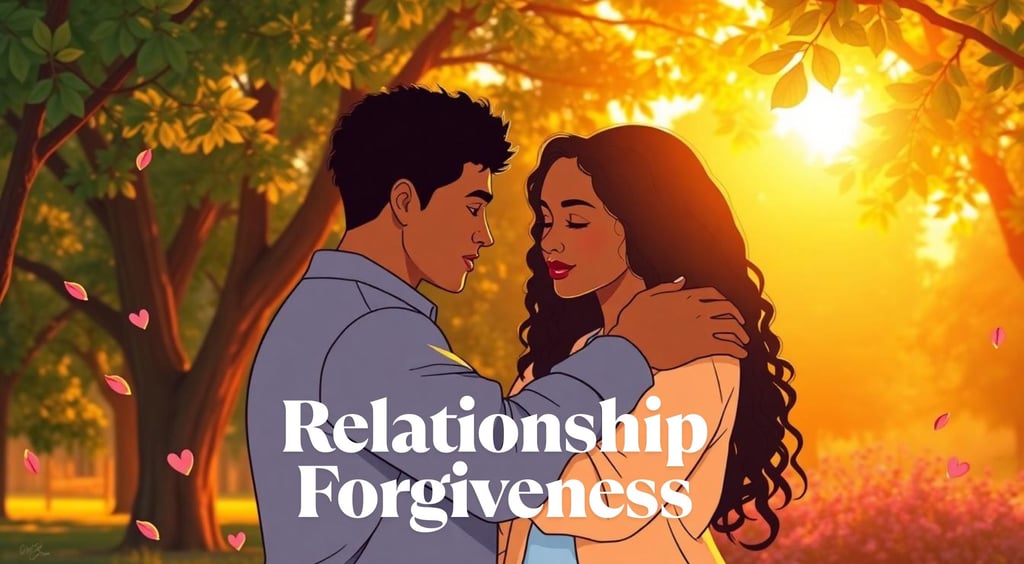

Forgiveness sits at the heart of any close connection, and it’s often hardest where it matters most—our relationships.
Whether the pain comes from a single mistake or a long pattern, choosing relationship forgiveness can be transformative.
For women who crave a real sense of peace and a stronger sense of self, letting go of old wounds can clear space for hope and deep healing.
This post brings together honest stories, small victories, and down-to-earth ideas to help you make sense of forgiveness.
We’ll talk about why relationship forgiveness matters, how it changes the way we show up for each other, and how it’s often the first step back toward trust and tenderness.
If you’re feeling stuck or unsure how to move forward, you’re not alone—and there’s a path forward that can lead to more joy and more connection.
The Importance of Forgiveness in Relationships
Forgiveness plays a quiet but powerful role in relationships. Sometimes it's as simple as letting a small misunderstanding fade away.
Other times, it's the slow, hard work of repairing trust after a deep hurt.
Choosing relationship forgiveness isn’t just about peace for the other person—it's a gift you can give yourself.
In my own life, learning to forgive wasn’t a straight line; it looked more like a bumpy trail with stops and starts, but every step brought a little more light and breathing room into my world.
Let’s look at why forgiveness matters and how it shapes the way we love.
Emotional Benefits of Forgiveness
Forgiving someone close can feel like setting down a heavy bag you've carried too long. The sense of relief is real.
When we hold onto anger or old pain, it lingers in our bodies and minds, feeding anxiety, sadness, or even physical aches.
I remember times after an argument with my partner when I replayed every word, filling my mind with doubt and stress.
The moment I chose forgiveness, it felt like I could breathe again.
Here’s how relationship forgiveness can change your emotional world:
Brings Inner Peace: Forgiveness creates emotional space for calm. When you let go of blame, you make room for hope, kindness, and even laughter again.
Reduces Anxiety and Sadness: Carrying hurt takes energy, often leading to tension, worry, or sleepless nights. Forgiving interrupts this cycle, offering a sense of lightness and even relief from old pain.
Deepens Emotional Connection: Letting go brings you closer. When you drop your guard and allow yourself to forgive, you invite your partner to do the same. This shared vulnerability strengthens intimacy and trust.
Little by little, practicing forgiveness builds your capacity for grace—not just for others, but for yourself, too. It's not about forgetting.
It’s about choosing peace each day, even when it feels hard.


Long-term Impact on Relationship Stability
Over the years, I’ve seen couples—friends, family, and even in my own life—grow stronger through the everyday act of forgiveness.
It’s a steady thread running through the fabric of lasting relationships. If you think of your bond as a garden, forgiveness is the water that keeps it alive when storms pass through.
This long-term impact shows up in big and small ways:
Builds Safety and Trust: When both people know mistakes can be forgiven, they feel safer being open and honest.
Encourages Honest Communication: Instead of hiding or walking on eggshells, you can talk through tough moments, knowing forgiveness is possible.
Promotes Growth: Each act of forgiveness is a step toward learning together, even from missteps.
Lowers Chance of Resentment: Letting things fester breeds silent hurts. Addressing pain and choosing forgiveness keeps resentment from taking root.
For example, I once spoke with a friend who’d weathered a rough patch in her marriage—hurt feelings, missed expectations, late-night tears.
Yet, by sitting together and working through the pain, they found forgiveness.
Years later, she shared that every hard moment had made their connection steadier.
“We trust each other in a deeper way now,” she told me. “We know we can heal together, even after mistakes.”
Relationship forgiveness isn’t magic, but it is steady.
It builds the foundation for partnerships that last—not because trouble never comes, but because you can weather it and grow closer, one forgiving moment at a time.
Barriers to Forgiving in Relationships
Even when we know relationship forgiveness can bring healing, it doesn’t always come easy.
There are roadblocks—some built by our experiences, others by the world around us—that make forgiveness feel like climbing a mountain with no map.
These barriers can halt progress and leave you feeling weighed down, even when you want to let go and start fresh.
Here’s a closer look at what makes forgiving so hard, especially for women hoping to rebuild trust and peace in their connections.
The Importance of Forgiveness in Relationships
Forgiveness plays a quiet but powerful role in relationships. Sometimes it's as simple as letting a small misunderstanding fade away.
Other times, it's the slow, hard work of repairing trust after a deep hurt.
Choosing relationship forgiveness isn’t just about peace for the other person—it's a gift you can give yourself.
In my own life, learning to forgive wasn’t a straight line; it looked more like a bumpy trail with stops and starts, but every step brought a little more light and breathing room into my world.
Let’s look at why forgiveness matters and how it shapes the way we love.


Dealing With Betrayal or Infidelity
Few pains cut as deep as betrayal, especially when it comes from a partner you trusted. When you find out about infidelity or any serious breach, it shakes your sense of safety and self-worth.
You might feel lost, angry, even ashamed—like the very ground you stood on has given way beneath your feet. Forgiveness, in these moments, can feel almost impossible.
Some women I’ve spoken to describe the aftermath of betrayal as a storm that sweeps through every part of life—sleep, work, friendships, even how you see yourself.
The hurt isn’t only about what happened, but also about trusting yourself again. You might wonder: Was I not enough? How did I miss the signs?
That voice inside can make forgiveness seem like weakness, or even self-betrayal.
Common challenges that stand in the way of forgiveness after big betrayals include:
Fear of Being Hurt Again: Once wounded, it’s hard to risk opening up.
Loss of Trust: Trust is like a delicate thread; one sharp cut can leave it in tatters.
Pressure to "Move On" Quickly: Family or friends might think you should forgive and forget, but real healing often takes time.
Feelings of Anger or Revenge: These emotions can feel protective, but they often keep you stuck in the hurt.
Forgiving after betrayal is rarely a straight path. Some days, you’ll feel open to it. Other days, the pain roars back. This tug-of-war is part of the process.
You don’t have to rush or force yourself. The first step might simply be letting yourself feel what you feel—with honesty, kindness, and no self-judgment.
Cultural and Personal Expectations
Forgiveness isn’t just a personal act—it’s tied up in the messages we hear from family, community, and media about what love and loyalty should look like.
Sometimes, these voices add heavy pressure instead of support.
For many women, the world sends mixed messages:
"Good women always forgive." This idea makes it seem like you are supposed to put your pain second, which isn’t fair to your needs or worth.
"Strong women never let themselves be walked over." The flip side tells you that forgiving means being weak—so you’re judged no matter what you choose.
Stigma Around Boundaries: Setting boundaries after being hurt can be mislabeled as “holding a grudge” or being “cold.”
On top of outside voices, your own beliefs add layers:
Guilt over wanting distance: You might feel bad for needing space or time before even thinking about forgiveness.
Pressure to keep the peace: If you’ve always been the caretaker, prioritizing harmony, putting your needs first can feel unnatural.
Fear of being judged: You worry about what others will say if you either forgive or don’t.
Breaking free of these old stories takes courage. Forgiveness in relationships doesn’t mean ignoring your pain, or accepting what can’t be changed.
It means honoring your own heart—even if that goes against what everyone else expects. The truth is, there are as many ways to forgive as there are ways to love.
Only you can decide what feels right on your path to healing.
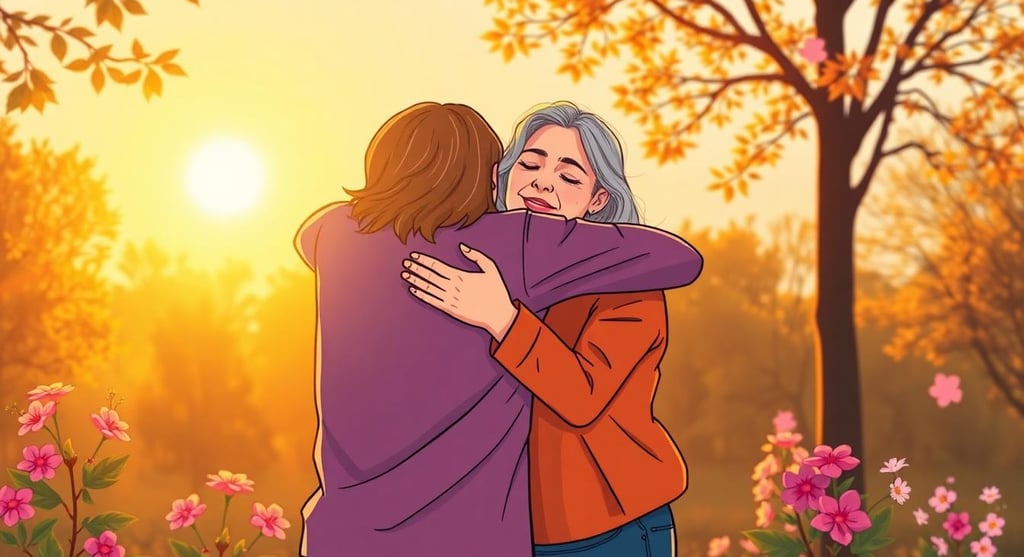

Stories of Relationship Forgiveness: Real-Life Case Studies
Hearing about real experiences can spark hope in places we thought were too hurt or hardened.
Stories help us see that relationship forgiveness is possible, even after heartbreak or disappointment.
These case studies, gathered from honest conversations with women and couples, shine a light on how forgiveness looks in everyday life.
Sometimes it’s messy; sometimes it’s slow. But every story holds a thread of courage and grace.
Rebuilding After Betrayal: Maria and Daniel
Maria and Daniel spent fifteen years together before trust broke. Daniel kept a secret about a financial mistake—not an affair, but it rattled Maria to the core.
She felt the ground shift, her view of their bond spinning. Friends told her to “move on” or to leave, but Maria chose a quieter way forward.
She set clear boundaries, asking for honesty. They started talking—some days, only a few careful words. Maria allowed herself to be angry and sad.
She wrote in her journal, gave herself permission to grieve, and asked Daniel to join her in a counselor’s office. Forgiveness didn’t wash over her in a single day.
It was more like a mosaic, pieced together by:
Letting herself feel and speak her truth
Making time to listen to Daniel’s own fears and hopes
Agreeing to rebuild, but on new, healthier terms
Over time, forgiveness brought peace. Maria says the anger faded, replaced by a quiet trust—not blind, but steady.
Their marriage stands on “earned grace,” she says, where forgiveness feeds love, not erases what happened.
Forgiving What You Can't Forget
Discover How to Move On, Make Peace with Painful Memories, and Create a Life That’s Beautiful Again
Healing Old Wounds: Lisa and Her Mother
Not all stories center on partners. Relationship forgiveness also weaves through our family stories.
Lisa spent years feeling weighed down by the things unsaid between her and her mother—times she felt dismissed, or pressure to be perfect.
Moving away helped, but the heaviness stayed. Lisa decided to write her mother a letter—not to rehash every hurt, but to name her feelings.
She didn’t expect much. What happened surprised her: her mother responded, not with defense, but tears. They talked with new honesty.
Lisa learned forgiving didn’t mean ignoring the past, but letting herself put the bag down.
She lists small steps that helped:
Naming emotions without blame
Allowing both sadness and understanding
Choosing to look forward—not just back
Lisa says forgiveness feels like spring after a cold season: slow, crooked, but full of hope she thought she'd lost.


Surviving Daily Disappointments: Jenna and Mark
Sometimes, the need for forgiveness isn’t about big betrayals. Jenna and Mark had a happy, ordinary marriage, but the little things piled up.
Mark forgot birthdays, tuned out during serious talks, left the chores half-done. Jenna felt invisible.
She remembers blowing up over dirty socks—not realizing it was about years of tiny hurts. Instead of stewing, Jenna tried something different: she told Mark exactly how his actions made her feel.
They began a habit—sharing what bothered them each week, with a promise to listen instead of defend.
Jenna’s act of forgiveness meant releasing the grip of old frustrations. It wasn’t a gift for Mark; it was for herself. She felt lighter, less tangled in silent resentments.
Now, their arguments don’t linger. Forgiveness, she says, is like clearing a path after a storm—hard work, but worth it for the sun that follows.
Keys to Forgiveness in Real Life
These stories have a few things in common. Forgiveness isn’t perfect or pain-free. It asks us to be honest, patient, and gentle with ourselves.
When women share their stories, they’re passing along survival skills:
Give yourself space. Healing takes time.
Speak your truth. Say what you feel, even when it scares you.
Set clear expectations. Forgiveness does not mean tolerating more hurt.
Look for growth on both sides. True forgiveness helps everyone move forward, not just the person who made a mistake.
Relationship forgiveness draws its strength from many hands—your own, those who support you, and sometimes, those who once caused the pain.
The journey is rarely smooth, but each step forward, no matter how shaky, creates room for new connection.


Steps to Practicing Forgiveness and Reconciliation
Relationship forgiveness is not a single act or decision—it’s a series of small but brave steps.
Real healing in love, whether between partners, friends, or family, asks us to be both honest and hopeful. Sometimes we stumble.
Other times, we discover a quiet strength that carries us farther than we imagined.
The following steps grow from lived experiences, heartfelt stories, and the wisdom that comes from facing hurt without letting it harden us.
Let’s explore what these first steps can look like for you.
Taking Responsibility and Expressing Emotions Honestly
The heart of relationship forgiveness beats strongest when we claim our feelings and speak them truthfully.
This isn’t about pointing fingers or covering up the pain with a smile. It’s about letting your emotions come out into the light, even if they feel messy at first.
Here’s how to start:
Admit your pain. Let yourself name what happened and how it wounded you. This could sound like, “I felt scared and let down when you broke your promise.” There’s no need to filter or dress it up.
Own up to your own part—if you have a piece in the mess, even a small one, call it out. Maybe you shut down instead of asking for what you needed, or brushed past red flags. Owning this is not blaming yourself; it’s making space for honest change.
Share emotions without shame. Cry, write, talk, or just sit quietly with what hurts. Journaling or even recording voice memos can help you find words if you feel stuck.
Speak with kindness, but stay real. You don’t need to “make nice.” Honesty that’s mixed with care is powerful. Instead of “You always hurt me,” try “When this happened, I felt alone. I need to tell you the truth to move forward.”
Invite your partner or loved one to share. Ask them to express their side. Be ready to truly listen—even if you don’t agree with their story.
Honest expression takes courage. But it builds the safety that makes forgiveness even possible. It reminds everyone involved: we matter, and our feelings are valid.
Rebuilding Trust After Forgiveness
Relationship forgiveness opens the door, but rebuilding trust is the next step. Trust grows the way a garden does—slowly, with care and patience.
It doesn't return overnight, but you can nurture it, even in rocky soil.
Try these steps for gentle rebuilding:
Set clear agreements. Choose new promises—big or small—that support healing. Agree on how you’ll check in, apologize, or revisit hard feelings if needed.
Follow through, even in small ways. If you say you’ll call after work, make that call. These little actions rebuild trust brick by brick.
Be open about setbacks. Some days, doubt will return, or old pain will pop up. Name it gently. “I’m feeling a little unsure today,” is honest and fair.
Check in with each other. Regular check-ins—whether weekly dinners or bedtime talks—create space for new understanding.
Celebrate progress. Mark moments when trust shows up—a hard talk that goes better than before, a shared laugh, an offer of support. These are victories.
Here’s a truth I’ve seen in many women’s stories: Forgiveness isn’t the end of big feelings. It’s the beginning of a new way to live together.
You're building a stronger bridge, plank by plank—and over time, you'll find it can hold both of you, even when storms return.
Relationship forgiveness calls for honesty, patience, and small acts of hope. Each time you practice these steps, you give love another chance to grow.
Healthy Boundaries and Self-Care in Forgiveness
Forgiveness in relationships can bring a sense of peace and renewal, but it’s easy to forget that real healing also depends on how well we honor our own needs.
Many women wonder—can you forgive and still protect your heart? The truth is, both are possible.
Drawing lines where you feel safe and tending to your own well-being are acts of love, both for yourself and for your relationship. You can show compassion without inviting repeated pain.
Taking care of yourself isn’t selfish. It’s necessary.
Forgiveness without boundaries or self-care can leave you drained and resentful, but when both are in place, you open the door to deeper growth and lasting connection.


Why Healthy Boundaries Matter in Forgiveness
Forgiveness does not mean erasing your needs or letting someone keep hurting you. Healthy boundaries are those fences that let the good in but keep out what no longer serves you.
Think of boundaries as the gatekeepers for your emotional garden—they let in the sunlight, the kindness, and the growth, but block out harm and old patterns.
Women sometimes feel pressure to say yes, to accept apologies too soon, or to move on before they're ready.
But forgiveness isn't about giving up your sense of safety. It’s about making choices that honor both your heart and your limits.
A few clear reasons boundaries matter during forgiveness:
You protect your self-worth. Boundaries remind you—and others—that you are worthy of respect, even in the hardest moments.
You prevent repeated hurts. When you stand firm about what you will not accept, you give your relationship the chance to heal in healthier ways.
You keep trust real. Saying “no” or “not yet” can be a way of keeping trust honest, instead of pretending everything is fine when it isn’t.
Setting boundaries is not putting up walls. It’s more like telling the truth about what feels safe for you right now.
Simple Ways to Set Boundaries After Forgiveness
It’s normal to wonder how to set limits when you’re aiming to forgive. You don’t want to seem closed off, but you also need to feel safe inside your own life.
Here are a few ways to signal your boundaries with care and honesty:
Speak clearly. Tell the other person what you can and cannot accept at this time. Keep your words simple and direct. For example: “I need some time before we talk about this again.”
Limit contact if needed. If emotions still feel raw, it’s okay to step back for a while, even if you choose forgiveness.
Set new rules for rebuilding trust. This could be making honesty a daily habit, checking in more often, or sticking to shared plans.
Protect your space. If you live with someone who hurt you, having private time or a safe spot to recharge is key.
You get to decide how forgiveness looks for you. What brings peace to your heart? What helps you feel steady and hopeful? Start small, and adjust as you learn what feels right.

6 Keys to Forgiveness In Your Closest Relationships
Watch Video...
Self-Care as a Foundation for Forgiveness
Relationship forgiveness often asks us to pour from our own cup. The only way to give from a place of strength is to keep refilling that cup with kindness toward yourself.
Self-care is how your heart recovers. It does not mean bubble baths (unless that’s your thing). It means treating your emotions, your body, and your mind with patience and respect.
Some ways to practice self-care during forgiveness:
Rest when you need it. Healing takes energy. Allow yourself guilt-free rest, naps, or early bedtimes.
Move your body. A gentle walk, stretching, or even dancing in your living room can release tension and boost your mood.
Spend time with supportive people. Friends or family who listen without pushing you to rush are gold. Seek their company.
Write down your feelings. Journaling can help put emotions in perspective and clear your mind.
Honor your own progress. Notice small shifts. Maybe today you’re a little less angry than yesterday. Celebrate these moments.
Self-care doesn’t fix everything, but it makes forgiveness less heavy to carry. Take breaks. Let yourself laugh or cry or do nothing for a while. You deserve care while you heal.
Boundaries and Self-Care Make Forgiveness Stronger
Relationship forgiveness is possible without losing yourself, and it's actually stronger when you put self-care and healthy boundaries first.
Doing so sends a loving message: “I can forgive, and I can protect my own well-being too.” When you take these steps, you’re not just healing a relationship—you’re learning to trust yourself again.
As you practice setting boundaries and caring for your needs, notice what changes for you.
Does your heart feel lighter? Do your days hold a bit more hope? Trust those feelings, and let them guide you on your path forward.
Conclusion
Relationship forgiveness is a gift you offer yourself as much as anyone else.
Every story and step shared here highlights how letting go, while often tough, unlocks space for deeper healing and more honest connections.
Real peace begins when you give yourself permission to feel, to set boundaries, and to start again—on your own terms.
It’s no small thing to choose forgiveness. For women especially, honoring your heart's needs helps transform wounds into wisdom.
As you move forward, remember that your journey matters and your courage is enough. If today brings you a little closer to healing or hope, hold onto that light.
Thank you for spending your time here.
If these reflections speak to you, share them with someone who might need them or add your story in the comments below.
Your voice and experience can help others find their own path toward stronger, kinder relationships.
